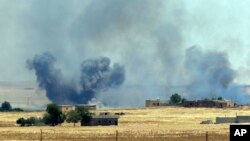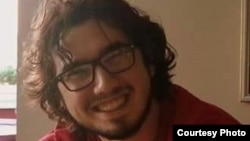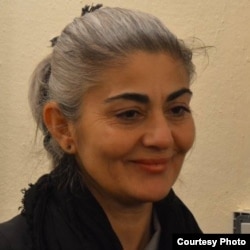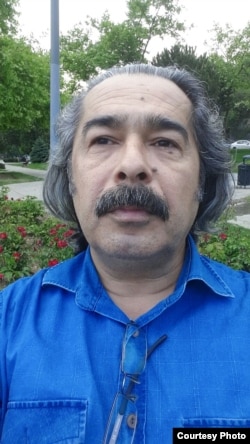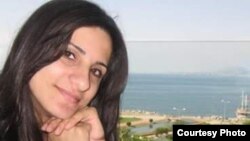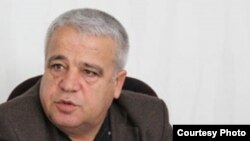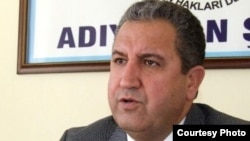Turks for decades lived virtually untouched by the turmoil in the Middle East and the upheaval in the Muslim world, with the nation's internal challenge centered on curbing Kurdish insurgents.
In the last two years, however, the fallout from Syria's civil war and the rise of Islamic State have caused serious problems for Turkey.
Struggling with housing hundreds of thousands of war refugees, reeling from IS terror attacks, shaken economically from a drop in tourism, and losing trade with Russia in a diplomatic rift over Syria, Turks from varied walks of life are uneasy and fearful.
The free press, too, is under siege as the Turkish government has cracked down on journalistic freedoms. Turks have grown reluctant to express their opinions for fear of government reprisal.
VOA interviewed a cross section of Turkish society. Here are some excerpts:
Mehmet Ak, 55, a labor inspector from Ankara
"These bombings make me fearful. I am scared that I may die because of it. I try to stay away from crowded places. If I am at a crowded place, I try to leave as soon as possible.
"We in our family constantly tell each other that we have to be careful. We tell our children not to go to shopping centers and ask them to stay away from the city's main arteries.
"I go to many places because of my work and see everywhere that many people are concerned about themselves — their family members’ and their children's security."
Mustafa Atalay, 48, a business owner from Ankara
"People are staying away from shopping centers. This caused the local trade to decrease. Internet sales increased instead.
"Everyone became affected negatively by these bombings. Other business owners that I know feel the same way I do. After the bombings, many business owners told their employees to use their vacation time, because there were no sales at all."
Gamze Dusmez, 45, a linguist from Ankara
"Bombs in Ankara scared us like hell. I still hear sirens going in my head. In Ankara, authorities increased security steps. There are new checkpoints.
"There are huge tourism losses. There was an international music festival in Ankara, but foreign artists did not come. Because of cancellations, the festival was on just for a week instead of a month. Foreigners canceled.
"I don't think security steps are enough. Take the attack in Bursa, for example. The woman suicide bomber got on the bus to Bursa in Sanliurfa and her bag was full of explosives. Intercity bus terminals are not checked thoroughly like the airports. I think the intelligence organization should do a better job."
Safak Behram Guner, 21, a university student from Ankara
"When bombings of this sort happen, the first reaction of individuals and societies is to fear. We lived this on our university campus, too. But recently, feelings of people are turning into frustration and desperation. We can't get the news accurately because of gag rules and restrictions.
"A suicide bomber can be anybody. He may be walking next to you on the street. That is different than armed attacks. That is why we feel so frustrated.
"I see Turkey being one step away from the civil war. The responsibility of all this is on the Middle Eastern governments, multinational corporations, terrorist organizations and everybody else who benefits from these developments."
Hasan Koyunoglu, 39, a tour guide from Istanbul
"Incoming tourists are seriously influenced because of the bombings in Turkey. Usually every year, there used to be many foreign tourists in the Sultanahmet district. This year, you can only see tourists from the Middle East.
"Russian sanctions affected the Antalya area. If there were no terror acts, maybe we could have closed the Russian gap. Cruise firms canceled Turkey stops, too. This will be the worst of the last 10 years in Turkish tourism.
"Hotel and vacation prices are going down and will go down more. Europeans may take last-minute cheap packages; but, there have been no early reservations made in February and March.
"I blame the government for this situation; also, the other countries that have turned Syria into a proxy war zone. Europe is not even taking 10,000 refugees."
Mine Alkan, 50, a textile worker from Bursa in northwest Turkey
"I have observed the presence of jihadists even in the most elite neighborhoods of Bursa. There are obvious differences between real Syrian immigrants and jihadist IS fighters. Their clothes and physical appearances show that they have received military training.
"So our family members stay away from jihadist-looking people and [try] not to express our political views publicly. My son is autistic and he openly talks about politics, although I try to stop him. We mostly live an isolated life and avoid going to the city center as much as possible.
"The Syrians have changed the city enormously. They are used as cheap labor by many employers here. The number of Arabic-speaking people on public transportation vehicles is outnumbering those who speak Turkish. So many Syrians have rented houses here, and I have no idea about what they do."
Suleyman Kaplan, 50, a hotel manager in the seaside tourist city of Antalya
"The hotel I work for will close the year with at least a 20 percent loss. This year is gone. We are focusing on 2017. Tourism losses only from Russians will be more than $15 billion.
"We have to blame ourselves. Our Middle East policy is wrong. Our country is divided into two pieces like a watermelon. Solution is democracy without ethnic and religious discrimination."
Birol Yilmaz, 51, a mechanical engineer from Istanbul
"I feel concerned about my country and new generations. It is sad to see that my country is moving away from peaceful co-existence and Ataturk's principle — peace at home and peace abroad.
"I don't want to give concessions from my lifestyle. That is why I did not take any special precautions regarding bombing acts. When my son goes out, I warn him and ask him to be careful.
"I see the governments of the past 50 years responsible. It has become worse in the past 20 years. Officials do not serve people and the public. After joining NATO, we have become a colony.
"We need to have real public servants to get out of this mess. We can't see the light, but we can't lose hope either."
Abdullah Gulsoy, 50, an appliance salesman from Gaziantep, where IS is active
"IS activities in Gaziantep affect many things in many ways — Kilis is being bombed every day. We feel that, too. There are no investments in this area anymore. People are very concerned about the security situation in the city.
"Refugees are a serious problem for our area. All kinds of crime have increased. We tell our kids not to go out on the streets. There are more refugees than what the government is saying. The government says half a million refugees, but the real number is much higher.
"Government officials are not taking necessary precautionary steps. Our foreign policy is wrong. Hitting the Russian jet really hurt us. In rural areas, there is some sympathy for IS amongst the people who are extremely religious."
Yeliz Tumkaya, 24, a teacher from Istanbul
"The high school I work at is not in a very secure area of Istanbul. I am concerned when I go to work every morning. When I wait for the bus, I pray that there will be no suicide bomber around me. I don't trust the metro trains.
"When even we think that our country is not livable anymore, why should foreign tourists come to have a vacation in Turkey? Nobody would like to stay at a place that is not secure for people. Of course, our economy is badly affected. The Russian crisis added extra burden to all these. Unfortunately, I don't have a solution for these things happening in the world."
Gani Alicioglu, 47, a political chief for the Vatan Party in Kilis, near the Syrian border
"We are constantly being rocketed by ISIS [Islamic State]. People are very concerned, scared and in panic. More than 30 percent of [the] Kilis population has moved out of the city. Innocent people are dying by the rockets.
"Our officials don't care. They didn't take a step until people protested the rocket attacks by IS. People are reacting to the government. No economy [is] left in Kilis. People of Kilis do not feel sympathy for ISIS.
"I see the USA, England, Germany and France as responsible countries because they caused Syria to come to this point. As long as the war in Syria goes on, this violence problem will continue.”
Atilla Yazar, 54, an engineer from the border town of Sanliurfa, where IS activity is high
"We believe that the activities of the IS in our country are within the knowledge of the government and the national intelligence organization. If the opposite were true, the IS would not be traveling and carrying out activities so freely and easily in our country. We think that the government creates and manipulates those inhumane organizations such as the IS in order to tyrannize over the dissidents in Turkey.
"There are about 480,000 Syrian asylum seekers or refugees in our city. And I can say that they are affecting the economy of the city very negatively. They are used as cheap labor and the local workers have been the sufferers in this situation."
Osman Suzen, 51, a lawyer and human rights activist in the southeast city of Adiyaman
"I think it was in 2013 that the activities of IS became visible in Adiyaman. It was way back then the locals here started saying that the youths in the city were joining the IS in large numbers. I remember that in August 2013, a family sought help from our association after their two children joined the IS. They told us that they wanted to get their sons back from the militant group and we asked them to seek help from the police department and the prosecutor's office. And they did.
"Their children returned four or five months after joining the organization. One of them had married a Syrian woman. They also officially wedded here and had a child. Then we heard that they left Adiyaman to join IS again.
"Since 2013, IS started overtly operating in the city, and even opened a tea house here and tried to portray itself as legitimate. I think it is now operating more like an underground organization."




